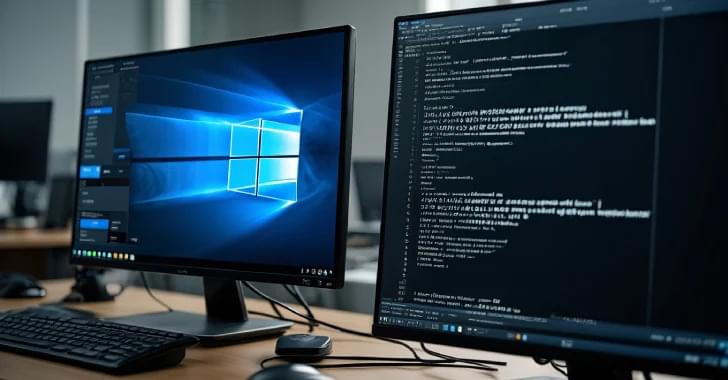1,297 breaches, involving 141 million files, reveal a monumental attack risk, as financial documents are present in 93% of them.



Hackers compromised Toptal’s GitHub organization account and used their access to publish ten malicious packages on the Node Package Manager (NPM) index.
The packages included data-stealing code that collected GitHub authentication tokens and then wiped the victims’ systems.
Toptal is a freelance talent marketplace that connects companies with software developers, designers, and finance experts. The company also maintains internal developer tools and design systems, most notably Picasso, which they make available through GitHub and NPM.

Brave Software says its privacy-focused browser will block Microsoft’s Windows Recall from capturing screenshots of Brave windows by default to protect users’ privacy.
Windows Recall is an opt-in Windows feature that takes screenshots of active windows every few seconds, analyzes them, and enables Windows 11 users to search for text within the snapshots using natural language. The goal is to make it easy for users to quickly find information about past activities in Windows.
However, the feature has sparked widespread criticism for potentially exposing sensitive data of Windows users, including passwords, emails, health records, and financial information.

OpenAI CEO Sam Altman says the world may be on the precipice of a “fraud crisis” because of how artificial intelligence could enable bad actors to impersonate other people.
“A thing that terrifies me is apparently there are still some financial institutions that will accept a voice print as authentication for you to move a lot of money or do something else — you say a challenge phrase, and they just do it,” Altman said. “That is a crazy thing to still be doing… AI has fully defeated most of the ways that people authenticate currently, other than passwords.”
The comments were part of his wide-ranging interview about the economic and societal impacts of AI at the Federal Reserve on Tuesday. He also told the audience, which included, representatives of large US financial institutions, about the role he expects AI to play in the economy.



In the race to develop AI that understands complex images like financial forecasts, medical diagrams and nutrition labels—essential for AI to operate independently in everyday settings—closed-source systems like ChatGPT and Claude currently set the pace. But no one outside their makers knows how those models were trained or what data they used, leaving open-source alternatives scrambling to catch up.
Now, researchers at Penn Engineering and the Allen Institute for AI (Ai2) have developed a new approach to train open-source models: using AI to create scientific figures, charts and tables that teach other AI systems how to interpret complex visual information.
Their tool, CoSyn (short for Code-Guided Synthesis), taps open-source AI models’ coding skills to render text-rich images and generate relevant questions and answers, giving other AI systems the data they need to learn how to “see” and understand scientific figures.
Questions to inspire discussion.
🤝 Q: What are the potential issues with the Uber-Lucid-Neuro robotaxi partnership? A: The partnership is a “cluster f waiting to happen” due to independent entities involved, which typically end in a “messy divorce”, making it potentially uncompetitive against fully integrated solutions like Tesla’s.
🗺️ Q: How does Tesla’s robotaxi service area expansion compare to Waymo’s? A: Tesla expanded its service area in 22 days, while Waymo’s first service area expansion in Austin, Texas took 4 months and 13 days, demonstrating Tesla’s faster and more aggressive approach to expansion.
Business Viability.
💼 Q: What concerns exist about the Uber-Lucid-Neuro robotaxi partnership’s business case? A: While considered a “breakout moment” for autonomous vehicles, the business case and return on investment for the service remain unclear, according to former Ford CEO Mark Fields.
🏭 Q: What manufacturing advantage does Tesla have in the robotaxi market? A: Tesla’s fully vertically integrated approach and ability to mass-manufacture Cyber Cabs at a scale of tens of thousands per month gives it a significant cost-per-mile advantage over competitors using more expensive, non-specialized vehicles. ## Key Insights.
Questions to inspire discussion.
🏢 Q: What are Elon Musk’s current ownership stakes in Tesla and XAI? A: Musk owns 55% of XAI and 12.9% of Tesla, with potential to increase his Tesla ownership to 20% through a compensation package.
💰 Q: How do the valuations of XAI and Tesla compare? A: XAI’s valuation is expected to reach $200 billion in the next round, while Tesla’s valuation is approximately $1 trillion.
Potential Conflicts and Risks.
⚖️ Q: What conflict of interest exists for Elon Musk in a potential merger? A: Musk’s significant ownership in both companies creates a conflict of interest in merger discussions, as he must balance his interests in XAI (55% ownership) and Tesla (12.9–20% ownership).
🔒 Q: What control risk does Elon Musk face with Tesla? A: Musk currently lacks the 25% voting control needed for major decisions in Tesla, presenting a non-trivial control risk that could be mitigated through Tesla’s investment in XAI. ## Key Insights.
Questions to inspire discussion.
🚀 Q: How might Elon Musk’s diverse projects contribute to Tesla’s value? A: Musk’s involvement in AI, energy, transportation, and communication through projects like Tesla, SpaceX, and Neuralink demonstrates his capacity to make progress on multiple fronts, potentially creating significant value for Tesla.
Political Involvement and Economic Strategy.
🏛️ Q: Why is Elon Musk getting involved in politics? A: Musk’s political involvement aims to create a better political system on Earth, addressing the unsustainability of US government spending and debt to avoid a fiscal doom loop.
📊 Q: What is Musk’s strategy to improve the US economy? A: Musk plans to accelerate GDP growth through AI-driven growth, humanoid bots, and reducing government spending and waste, potentially breaking free from the constant 7% growth line of the US stock market.
💰 Q: How could reducing government spending benefit the economy? A: By cutting wasteful spending and implementing a balanced budget requirement, the US could potentially grow its economy faster than its spending, reducing interest costs and freeing up money for other investments.